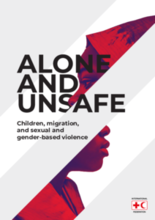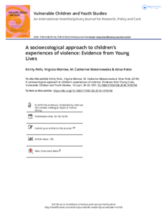childrens_living_arrangement
children_living_without_bio
Displaying 21 - 30 of 70
The study's objective was to determine what successful caregivers of orphaned and vulnerable children (OVC) in diverse countries do to sustain their positive mental health.
This study seeks to improve understanding of the risks and types of sexual and gender-based violence faced by children who migrate on their own, as well as the unfortunate and widespread gaps in protection and assistance for these children.
This paper highlights findings from a a 15-year longitudinal cohort study of children growing up in poverty in Ethiopia, India, Peru and Vietnam.
The aim of this study was to assess the prevalence of depression and its associated factors among orphans in Ilu Abba Bor Zone orphanages, 2016.
The focus of this article is on children trafficked or migrating alone from rural areas of the Wolaita zone of the Southern Nations, Nationalities, and Peoples’ Region to the urban centres of Jimma or Addis Ababa in Ethiopia.
The purpose of this study is to point out the experience of sexual and physical exploitation and its determinant factors among street children in Addis Ababa, the capital city of Ethiopia.
This article aims to explore the experiences of Ethiopian unaccompanied and separated migrant children in Yemen.
In this study, the authors examined the process of how relationships are built between Ethiopia adoptees and their adoptive families within the new family setting.
The present study has thoroughly examined the experiences and perspectives of left-behind children of migrant mothers in Addis Ababa and Sinana district.
This presentation describes the findings from a 2015 Save the Children study on kinship care in Ethiopia, Kenya and Zanzibar.




